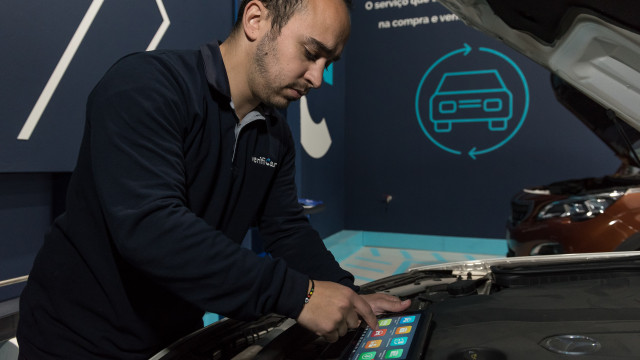O coordinator of the three projects and professor at the Department of Electronics, Telecommunications and Informatics (DETI), Rui Aguiar, believes that the 6th generation of wireless communication technologies supporting mobile internet networks “will probably be commercially available by the 2030s “.
Rui Aguiar, who is also the coordinator of the Line of Networks and Services at the Institute of Telecommunications (IT-Aveiro), adds that the three projects, which started this year, “cover a diversity of areas associated with the development of new communication technologies and include some of the leading European institutions in the area”.
The three R&TD projects, with the participation of the UA, are called “SNS OPS”, “RIGOUROUS”, and “IMAGINEB5G”, and are funded by the European Union, under the “Smart Networks and Servisses” programme.
The researcher from the University of Aveiro foresees that the new 6G technology “will further develop the connection between society and communications, allowing, for example, the introduction of virtual reality and holography”.
In his opinion, it is one more step, after “traditional 4G mobile communications that made it possible to access the Internet in Broadband from cell phones, and the new 5G networks, which are gradually being installed in Portugal, which bring the possibility of use critical services (in the case of robot control) or large sensor networks for the Internet of Things (for example, in Smart Cities)”.
Unveiling each of the projects, Rui Aguar adds that “IMAGINEB5G” “acts as an interface for different industries to be able to explore new communication technologies in experimental areas, on platforms installed in the regions of Oslo, Nice, Valencia and Aveiro (the latter based on the 5GAIner platform), covering areas such as industry, emergency and health services, or education”.
The project includes operators such as Telenor or Telefonica and reference companies such as Nokia, Airbus or Samsung.
The group of Portuguese entities coordinated by IT also included Altice Labs, Ubiwhere and AltranPortugal.
The “RIGOUROUS” project “will cover the biggest cybersecurity challenges, including aspects such as privacy and trust that will affect future networks and services”, exploring the areas of “machine learning and artificial intelligence, in order to create a system of services that is capable of responding to new security attacks”.
Participating in the “RIGOUROUS” project are multinationals such as Orange, Lenovo or Rhea, and a number of universities considered a reference in research into 6G systems, such as the Universidad de Murcia (Spain) and the University of Oulo (Finland).
The third project, “SNS OPS”, aims to integrate different European research activities, creating structured common programmes, developing ‘roadmaps’ and holding dissemination and discussion events.
It involves the 6G SNS Infrastructure Association and companies such as Nokia, Ericsson, Alcatel and Thales.
Also Read: Reusable Space Vehicle Returns to China After 276 Days in Orbit


